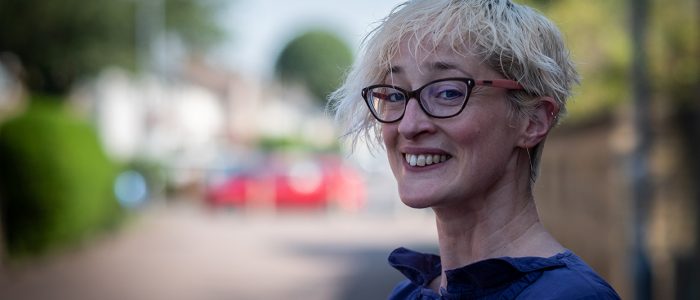Rodie’s parting words: What I’ve learned about faith in action

This is my last blog for FaithAction – the time has come for me to move on. So it seems a good moment to reflect on what I’ve learned over the past five-and-a-bit years. Here’s what will stay with me the most.
Faith-based organisations are holding out hope to people…
At a time when most of the news we get seems to be bad – or at least it certainly feels like that’s the case – there are people all over this country who are giving up their time, energy and love for the sake of other people. And asking nothing in return, because they believe that showing love to others is the most important thing we can do. My favourite part of this job has been meeting some of these amazing people and hearing their stories. These are the stories I think about when I need reminding that there’s more to life than what the media tells us.
…And people in ‘the system’ know it.
You can be cynical and say that politicians will praise faith-based organisations when it suits them, for doing things that the state can’t or won’t do. And you might be right, at least some of the time. But I think that no one can ignore the enormous, positive contribution that faith groups make towards keeping our society running.
When I started working at FaithAction I wondered whether I would encounter reluctance on the part of officials towards working with faith-based organisations. I didn’t. While we know that this kind of thing does crop up from time to time, on the whole I think that faith organisations offer their communities so much that anyone who refuses to engage with them is missing a trick – not to mention risking tying themselves in knots over equalities legislation.
People generally want to work with others who are positive and can offer solutions. I’ve concluded that faith-based organisations shouldn’t feel they have to apologise for their faith ethos. They should be honest about it and the ways in which it affects their work, but they should be proud of it too.
We have to make it okay to talk about mental health in faith settings.
When I started at FaithAction, I knew next to nothing about mental health. I still don’t know very much, but I’ve ended up somehow involved in the crossover between mental health and faith, and it’s a fascinating place to be.
At FaithAction we’re calling for health professionals to recognise what an important asset a person’s faith can be in supporting their mental (and physical) health, and what an asset faith groups represent when they are places that show care and compassion to their communities.
We’re also helping faith groups to recognise the significance of their role in supporting mental health. Part of this is making it ok for people to ask for help when they are struggling, knowing that they will be listened to (and not just told that they need to have more faith). A friend of mine became my hero when she put her hand up in a church prayer meeting and, despite her fear, said, “I would like us to pray for people with mental health problems, and I count myself as one of those.”
Saying something like this out loud requires bravery, but it also gives other permission to admit that they need help. This is how stigma is overcome.
Things can change.
This comes back to the hope in my first point. The stories I’ve heard illustrate over and over how people’s lives have turned around. The woman, new to this country, who used to stay at home with her young son and just cry – but whose son now has friends and is thriving, and who says, “His freedom is my freedom”. The church members who, many years ago, had a dream about a pot of soup, and are now commissioned by the local authority to run the homelessness services in their area. The older people who begin volunteering and find that they get back, in terms of fulfilment, far more than they give. To anyone who looks, some of these changes are simply amazing.
For me, looking at these lives, I see the fingerprints of a God who brings restoration. If you’ll allow me to stretch the metaphor, I feel as though all I’ve been doing for the past few years is just dusting a bit of powder, taking photographs of those fingerprints and holding them up for the world to see. And what a privilege it’s been.


